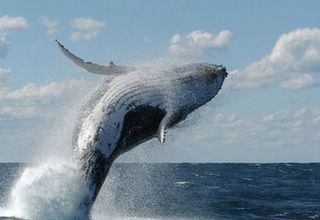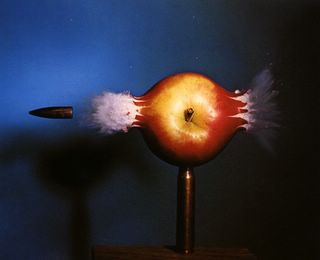“Praise him, sun and moon, praise him, all you shining stars.
Praise him, you highest heavensand you waters above the skies.
Let them praise the name of the Lord,
for he commanded and they were created.
Praise the Lord from the earth,
you great sea creatures and all ocean depths.”
(Psalm 148:3-5, 7)
Praise him, you highest heavensand you waters above the skies.
Let them praise the name of the Lord,
for he commanded and they were created.
Praise the Lord from the earth,
you great sea creatures and all ocean depths.”
(Psalm 148:3-5, 7)
Perhaps it was with Psalm 148 in mind, that Daniel Migliore comments that “while the stars, the trees, and the animals do not speak or sing of the glory of God in the same way that humans do, in their own way they too lift up their praises to God, and for all we know, they do this with a spontaneity and consistency far greater than our own.”[i]
Humpback whales, for example, sing underwater arias; when they’ve finished, they often breach, soaring into an explosive half-twist back-flop with their “wings” flung wide.[ii] One researcher who studies female humpbacks and their offspring reported seeing a juvenile “leap from the water a hundred times in a row.”[iii] Maybe singing and breaching is the language these great beasts of the deep use to talk to God, “to cajole him, plead with him, play with him, and make covenants with him.”[iv]
“God leads a very interesting life and is full of joy.
Undoubtedly he is the most joyous being in the universe…
We pay a lot of money to get a tank with a few tropical fish in it…
but God has seas full of them, which he constantly enjoys.” [v]
DALLAS WILLARD
Undoubtedly he is the most joyous being in the universe…
We pay a lot of money to get a tank with a few tropical fish in it…
but God has seas full of them, which he constantly enjoys.” [v]
DALLAS WILLARD
Ponder...
Have you ever pondered something like the humpback whale singing and breaching in praises to God?
How many more places in the universe might this type of praise be continually and spontaneously erupting?
Meditate on the following verses, what might they literally mean?
How many more places in the universe might this type of praise be continually and spontaneously erupting?
Meditate on the following verses, what might they literally mean?
“You will go out in joy and be led forth in peace;
the mountains and hills will burst into song before you,
and all the trees of the field will clap their hands.”
(Isaiah 55:12)
“The creation waits in eager expectation for the sons of God to be revealed. For the creation was subjected to frustration, not by its own choice, but by the will of the one who subjected it, in hope that the creation itself will be liberated from its bondage to decay and brought into the glorious freedom of the children of God. We know that the whole creation has been groaning as in the pains of childbirth right up to the present time.” (Romans 8:19-22)
[i] Daniel Migliore, Faith Seeking Understanding: An Introduction to Christian Theology, Grand Rapids: Eerdmans, 1991, 83.
[ii] Cornelius Plantinga Jr., Engaging God’s World: A Christian Vision of Faith, Learning, and Living, Grand Rapids, Michigan: William B. Eerdmans Publishing Company, 2002, 25.
[iii] Douglas Chadwick, “Listening to Humpbacks,” The National Geographic, July 1999, 21.
[iv] Eleonore Stump, “Faith and the Problem of Evil,” in Seeking Understanding: The Stob Lectures, 1986-1998, Grand Rapids: Eerdmans, 2001, 519.
[v] Dallas Willard, The Divine Conspiracy: Rediscovering Our Hidden Life in God, San Francisco: HarperSanFrancisco, 1998, 62, 63.






